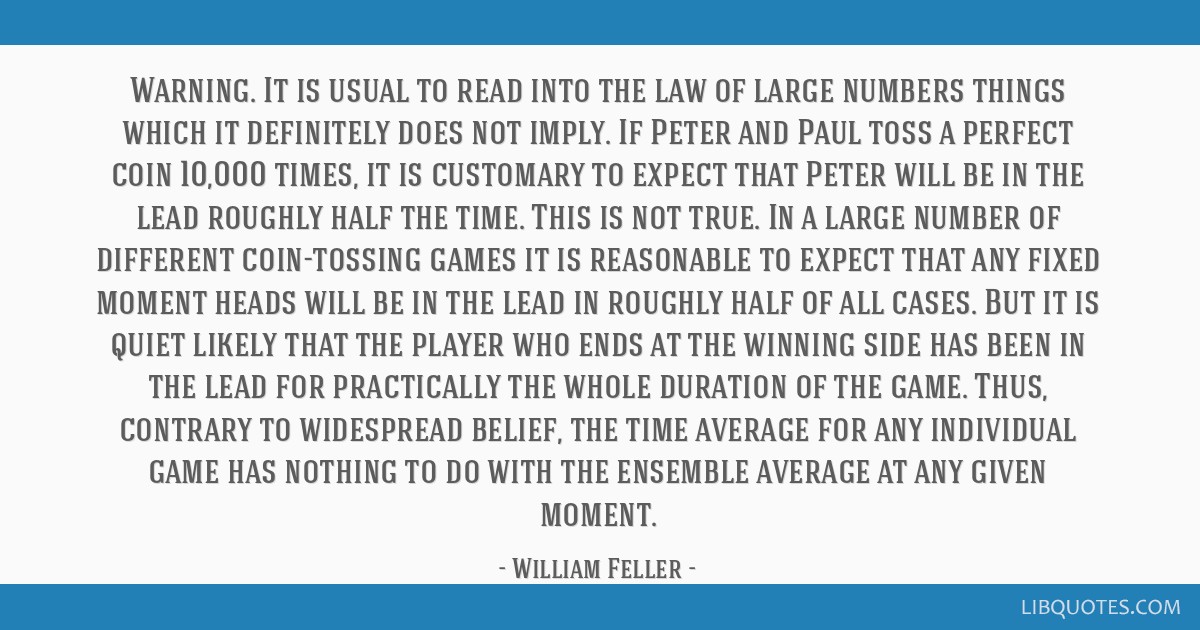Warning. It is usual to read into the law of large numbers things which it definitely does not imply. If Peter and Paul toss a perfect coin 10,000 times, it is customary to expect that Peter will be in the lead roughly half the time. This is not true. In a large number of different coin-tossing games it is reasonable to expect that any fixed moment heads will be in the lead in roughly half of all cases. But it is quiet likely that the player who ends at the winning side has been in the lead for practically the whole duration of the game. Thus, contrary to widespread belief, the time average for any individual game has nothing to do with the ensemble average at any given moment.
Chapter VI, The Binomial And The Poisson Distributions, p. 152-153. - An Introduction To Probability Theory And Its Applications (Third Edition)























